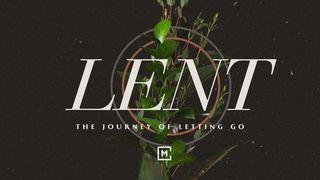Faith Among The Faithless: 10-Day Reading PlanSample

If we can define ourselves as victims, we can leverage the past to demonize our opponents in the present and accomplish our goals. Vulnerability, on the other hand, is about putting ourselves in harm’s way. At its best, it means putting ourselves in harm’s way for the sake of others.
Mordecai and Esther highlight the difference between vulnerability and victimhood. In each case, they deliberately took steps to put themselves in harm’s way. Mordecai passed for a Persian. He had nothing to gain from revealing his Jewishness and refusing to bow; he only had something to lose. And yet, for the sake of his soul, for the sake of God’s people, and for the good of the city, he refused to bow to Haman.
This is our invitation in a world gone mad. Rather than continue the race to the bottom of victimhood, we should look at our world, ask ourselves how faithfulness to our calling as God’s people invites us to participate in it, and embrace the risks that might come with it.
At times, that will look like Mordecai’s resistance, when we refuse to participate in something broadly accepted in our culture. Doing so will invite the wrath of those around us, but vulnerability calls us to do it anyway.
At other times, it may be that we’re called to take action—to start a business or a charity, to look for needs in our cities, our schools, and our neighborhoods—in hopes of making the city a more peaceful and flourishing place. Surely, as the march of culture continues toward madness, doing this will invite risks too. People might discover that you’re a Christian and call into question your every step, your every action. Vulnerability calls us to do it anyway. . . .
We don’t love our cities well by withdrawing and doing nothing. We also don’t love them well if we waste our lives with political arguments about who has victimized whom. No doubt there is a need for legal battles, a need to fight for religious liberty and freedom of expression. But just as important—perhaps far more important—there is a need for the faithful witness and faithful work of Christians in culture, putting themselves at risk for the sake of others and working in ways both great and small to make their cities more peaceful, flourishing places.
Scripture
About this Plan

Mike Cosper uses the story of Esther to illustrate how Christians can live a life pleasing to God even when they are immersed in today's secular culture. Using parallels drawn between today's society and the world of Esther, he discusses different ways that Christians can stay strong in their faith despite the increasing war against God's kingdom.
More
We would like to thank HarperCollins for this plan. For more information, please visit: http://amzn.to/2tNqLjl
Related Plans

Comfort - Rest in God's Care

Romans: God's Power to Save | Video Devotional

When Your World Ends

Law; Basic, Intermediate, and Advanced

3-Day Bible Plan: How to Truly Love Thy Neighbor in Today’s World

The Prince Without a Name

Lent: The Journey of Letting Go

Here and Now: Embracing the Gift of Presence in Marriage

Like the World Has Never Seen
